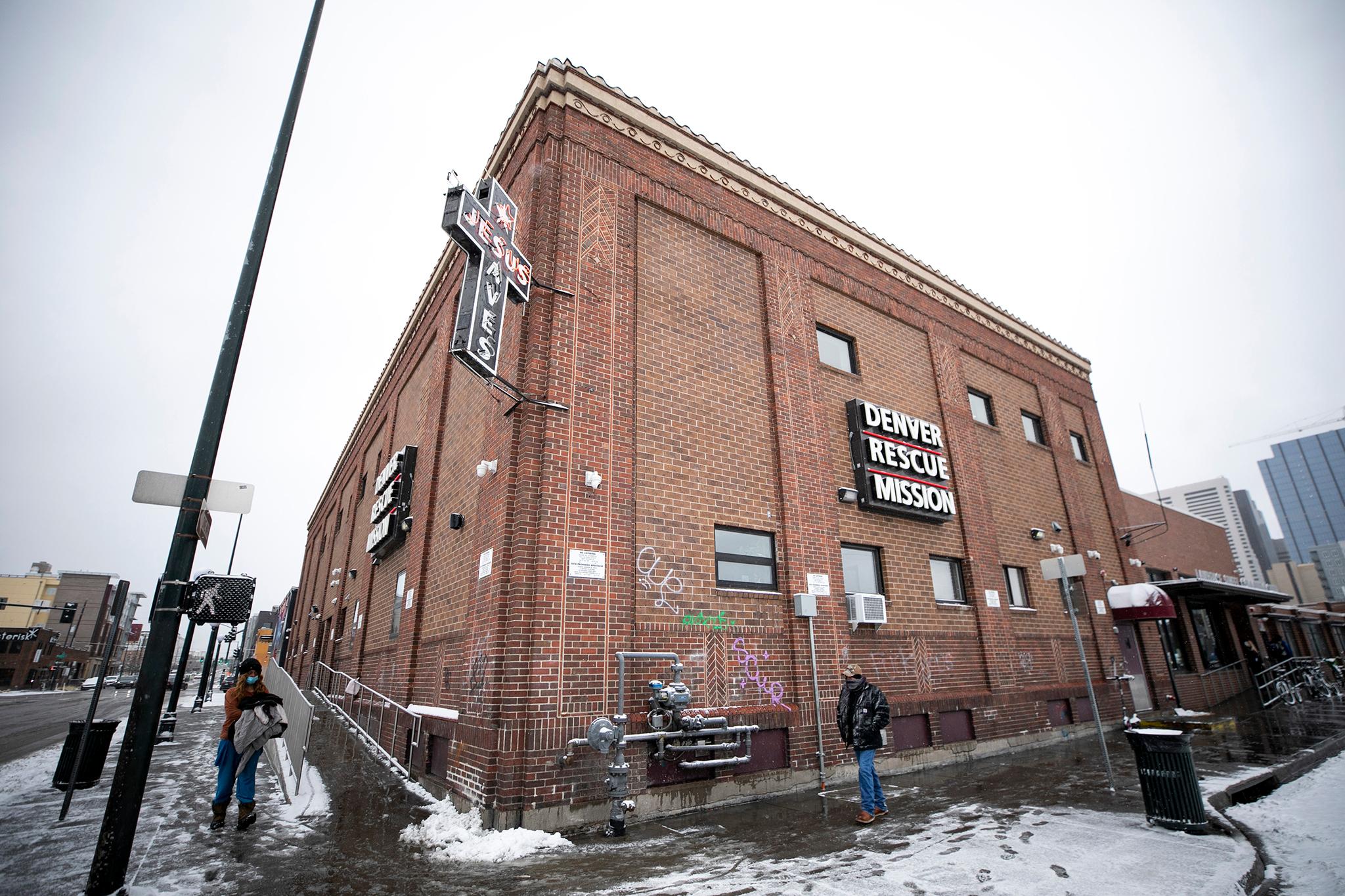Updated at 3:39 p.m. on Wednesday, Feb. 26, 2025
Some of the short-term homeless shelters the city contracts with are violating the American Disabilities Act and anti-discrimination laws, according to lawyers who plan to sue the city to force compliance.
Disability Law United and Newman McNulty recently sent a letter to Denver City Council members, Mayor Mike Johnston and the City Attorney’s Office detailing allegations of discrimination they have collected.
The shelters in question, operated by the St. Francis Center, Catholic Charities, and the Denver Rescue Mission, are emergency facilities and not part of Mayor Mike Johnston’s House1000 and All In Mile High long-term shelter efforts.
Attorney Andy McNulty told Denverite the letter was an invitation to cooperate with the advocacy group Housekeys Action Network Denver on negotiations and fixes. Talks between the advocates and the city began, but then stalled. With winter here and negotiations unsuccessful, McNulty said the city has not acted fast enough.
So he and the advocates are planning to file a lawsuit early in 2025. The goal: to force the shelters Denver contracts with to comply with basic accessibility requirements.
The City Attorney’s Office declined to comment on the allegations in the letter or the possibility of legal action.
“The City and County of Denver is always working to improve the shelter system and meet the needs of our unhoused neighbors,” Katherine Walmsey, a spokesperson for the Denver Department of Housing Stability, wrote Denverite in an email.
As to the specific allegations against shelters run by St. Francis Center, Catholic Charities and the Denver Rescue Mission, she had nothing specific to say.
Catholic Charities and the Denver Rescue Mission declined to comment on pending litigation. St. Francis Center did not respond to requests for comment by publication time.
The letter details multiple instances of discrimination at short-term homeless shelters.
Christopher Haworth, a man with cerebral palsy who uses a wheelchair, says he was denied entry at Denver Rescue Mission shelters when they didn’t have accessible beds available.
He was kicked out, on other occasions, because of the size of his wheelchair.
He was also denied admission by the Denver Rescue Mission’s Lawrence Street Shelter because staff considered his epilepsy a liability.
Mindy Polson, who uses a colostomy bag, told Denverite the staff at the 48th Street Women’s Shelter denied her the sharp medical scissors she needed to cut open her bag, so she was left trying to use nail clippers instead.
She damaged her colon in the process, which led to an infection. When she complained to shelter staff they continued to refuse to allow her access to medical scissors. She damaged her colon more and was eventually asked to leave the shelter. She claims she was kicked out in retaliation.
“Left to sleep on the street, her colostomy bag froze to her body,” the letter to the city states.
Another woman, referred to as AT in the letter, asked to be moved out of a bug-infested part of the 48th Street Women’s Shelter into an available standalone tent. She was kicked out, also, allegedly in retaliation.
Another man, JW, was not allowed to refrigerate and access his diabetes medications at the Denver Rescue Mission and St. Francis Center shelters. When he tried to use his diabetes medicines at room temperature, he nearly died from “life-threatening emergencies.”
“These are not isolated instances,” concludes the letter. “The surveys and reports from third parties include similar examples and tell of individuals being summarily kicked out for disability-related behavior by staff that are not trained in appropriate interventions.”
The activists’ attorney tried to negotiate a solution with the city, but talks stalled. So he sued.
Since talks with the city have proven fruitless, the advocates filed a lawsuit on Tuesday, Feb. 26.
The goal is not a financial settlement but to push the city and the shelters it funds to comply with the accessibility protections and anti-discrimination laws.
“If you’re a normal person, you have to comply with the law,” McNulty said. “But if you’re a city, in order to have to be forced to comply with the law, you have to be sued by someone.”













